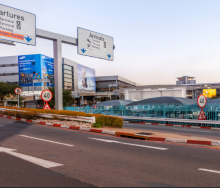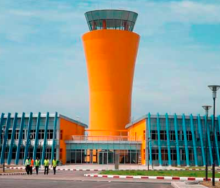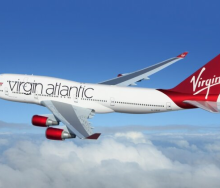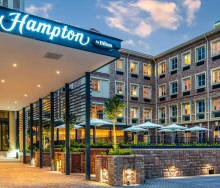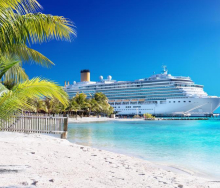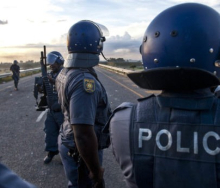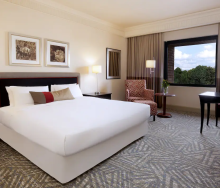Gin with Cape origins
LONG famed for its wine
estates, the Western
Cape is now the location
of a growing number of gin
distilleries.
“Cape Town has embraced
a renaissance among gin
lovers and has subsequently
provided multiple offerings
for enthusiasts,” says Briony
Brookes, Cape Town Tourism
communications and public
relations manager. “The city
has previously been voted
‘best city in the world for
restaurants and bars’, so it’s
fitting that it should lead in
this demand.”
“The Western Cape is well
known for being wine country,”
says Tim Harris, Wesgro
ceo, “but over the past few
years, has quickly become
a power player in the gin
stakes, with a number of local
distillers creating unique gins
by incorporating indigenous
botanicals into the distilling
process.” He says this has
resulted in award-winning gins
with a flavour that is tied to
the Western Cape.
Briony also points out that,
while boutique gin distilleries,
brands and bars are popping
up all over the world, Cape
Town is one of the main
cities to lead the craze, with
fynbos and rooibos being two
of the most popular unique
ingredients to infuse gin.
The Cape Town Gin Tour,
which launched last year, was
inevitable in a province already
hosting wine, spice, and olive
tours. The route encompasses
the following distilleries in
the city: Hope on Hopkins;
Musgrave Gin; Woodstock
Gin Company; New Harbour
Distillery; Pienaar & Son; and
Cape Town Gin Company.
“It currently features six
distilleries over six kilometres,
with over 20 local gins
available to try,” says Briony.
She says the Gin Route is selfguided, but a guided version of
the route will launch soon.
Corporates head back to Cape Town
AT THE start of 2018,
corporate travel managers
and TMCs were advising
against all but essential
travel to Cape Town as the
city faced severe water
restrictions. As a result,
hotels experienced a drop
in occupancies.
The industry reported
that corporates that were
travelling to Cape Town
were opting to fly in and
out for same-day meetings
instead of overnighting.
However, with a significant
reduction in water usage
by Cape Town residents
and visitors, the projected
date of ‘Day Zero’ – when
the city’s taps would run
dry – was pushed out
again and again, and
then averted. As a result,
travellers are heading
back.
“While the drought may
have initially resulted in
caution among corporates
for bookings, watermanagement activities
at hotels and conference
centres have seen a
resurgence in bookings,”
says Briony Brookes of
Cape Town Tourism.
City Lodge Hotel Group
chief financial officer,
Alastair Dooley, told
TNW that last year’s
water crisis had affected
occupancies in the
Cape Town region, with
some recovery observed
since November 2018.
“Travellers, both corporate
and leisure, who were
reluctant to add further
pressure to the water
crisis in the Western Cape
last year, are once again
comfortable choosing this
region,” he said.
However, he said the
economy in general
throughout South Africa
remained under pressure.
“This continues to
impact travel patterns as
corporates and consumers
tighten their belts.”
Acsa figures show that
passenger numbers for
the first quarter of this
year are up by 3% on the
same period last year.
“While we know that the
water situation in Cape
Town is still very serious,
it is great to see some
recovery in the region.
We’ve definitely seen
some renewed strength
on the Cape Town routes,
which is encouraging,”
says Kirby Gordon,
FlySafair head of Sales
and Distribution.
Briony also emphasises
that, while the worst
of the drought has
passed, with rainfall and
alternative water supplies
coming on board, Cape
Town, as with many
parts of South Africa,
remains a resource-scarce
environment. “With this in
mind, we ask that visitors
remain mindful of our
resources and that they
join locals in conserving
water supplies and
avoiding unnecessary use
of water.”
Top gin spots
The Gin Bar on 64A Wale
Street promotes itself
as “the original ‘secret’
gin bar”, and not without
reason. The bar is easily
missed and entered
though a chocolate café.
Inside the Mediterraneanstyle secret courtyard,
guests can enjoy five
signature cocktails, each
said to cure particular
ailments. For example, the
‘Soul’ cocktail “promotes
mindfulness a good night’s
sleep, and better general
wellbeing”. Gin tastings
are offered from Thursdays
to Saturdays, but must be
booked in advance.
Legacy Hotels and
Resorts’ The Portswood
Hotel and The Commodore
Hotel both offer daily gin
specials from 17h00 to
19h00, where guests
can select gin and tonics
for R45, choosing from a
range of tonics such as
orange and mint; blueberry
and basil; strawberry and
rocket; grapefruit and
rosemary; cinnamon and
thyme; red apple and
sage.
The Botanical Bar at 160
Longmarket Street serves
drinks and food with a
botanical twist, including
cocktails inspired by
regional botanicals. There
are also plenty of options
that have been created
with local craft gins.
The Twelve Apostles’ Gin
Lab @ The Conservatory,
is open daily from 11h00,
offering many local and
international gins. The
daily gin tasting offers
three local gins paired with
three different tonics.
Did you know?
Every Wednesday, the Quarter Kitchen at The
Portswood Hotel offers a buffet, serving Cape Malayinspired curries.
Kid-friendly Cape
“THE Western Cape is a
perfect destination for families
wanting to explore,” says
Wesgro’s Tim Harris. He
highlights the Garden Route as
one of the most popular selfdrives in South Africa, saying
it offers a number of familyfriendly experiences. Some
of these include strawberry
picking at Polkadraai Farm
in Stellenbosch; ziplining
near the Cango Caves;
puzzle activities at the Puzzle
Park in Plettenberg Bay and
sandboarding at the Dragon
in Mossel Bay, which boasts
the longest sandboard ride in
South Africa.
“With families, budgets are
usually a consideration,” says
Cape Town Tourism’s Briony
Brookes. She highlights some
of the fun things for families
to do for under R50 a head.
These include having a braai
at Maiden’s Cove, a lookout
point between Glen Beach and
Clifton Beach where pods of
whales and dolphins can be
spotted; sharing a few scoops
of ice-cream at The Creamery,
a Sea Point spot famed for
its organic, locally sourced
ice-creams; and exploring the
Victoria and Alfred Waterfront,
which offers plenty of
children’s activities, some of
them free.
Bo-Kaap gets national heritage status
DURING April, Bo-Kaap,
a former Malay township
on the slopes of Signal
Hill, was proclaimed a
National Heritage Area,
which ensures that
new developments and
alterations to existing
buildings do not break
with the historic urban
landscape of the area.
Apart from being
one of Cape Town’s
oldest residential
neighbourhoods, the
Bo-Kaap is also the
earliest established
Muslim community in
South Africa and the
home of the Cape Malay
people.
One of the theories
behind the bright colours
of the houses is that the
colours are an expression
of freedom, because
slaves were forced to wear
white. Another is that the
colours of the Bo-Kaap
are linked to Ramadan
and the celebration of Eid.
Visitors can experience
Cape Malay cuisine at
Bo-Kaap Kombuis, which
serves traditional Cape
Malay dishes and offers a
view of Table Mountain, or
visit the Bo-Kaap Museum
to learn more about the
history of the area and
its people. Established
in 1978, the museum
depicts the lifestyle of a
nineteenth-century Muslim
family. City Sightseeing
also offers daily free
walking tours in the
Bo-Kaap.
Coastal gems for families
The West Coast National
Park, just inland from
the secluded harbour of
Saldanha Bay, is a spot
where families can picnic,
hike, mountain bike and
whale watch. The park is
also rich in flora including
fynbos and daisies. Flower
season in the West Coast
National Park is at its peak
from August to September,
but there are flowers year
round.
The Western Cape is home
to two colonies of African
penguins, an endangered
species in decline. These
are at Boulders Beach
in the Table Mountain
National Park Marine
Protected Area and at
Betty’s Bay. While penguins
are habitually found in
the coldest parts of the
world perched on icebergs,
the African penguin is
unique for having adapted
to warmer subtropical
environments, such as the
Cape’s beaches.
Dubbed the ‘dogs of the
sea’, seals are playful and
inquisitive, making them
great snorkelling mates.
Swimming with seals can
be arranged with Animal
Ocean in Hout Bay and
Offshore Adventures in
Plettenberg Bay. Both
operators take guests out
to sea by boat and supply
snorkelling gear.

